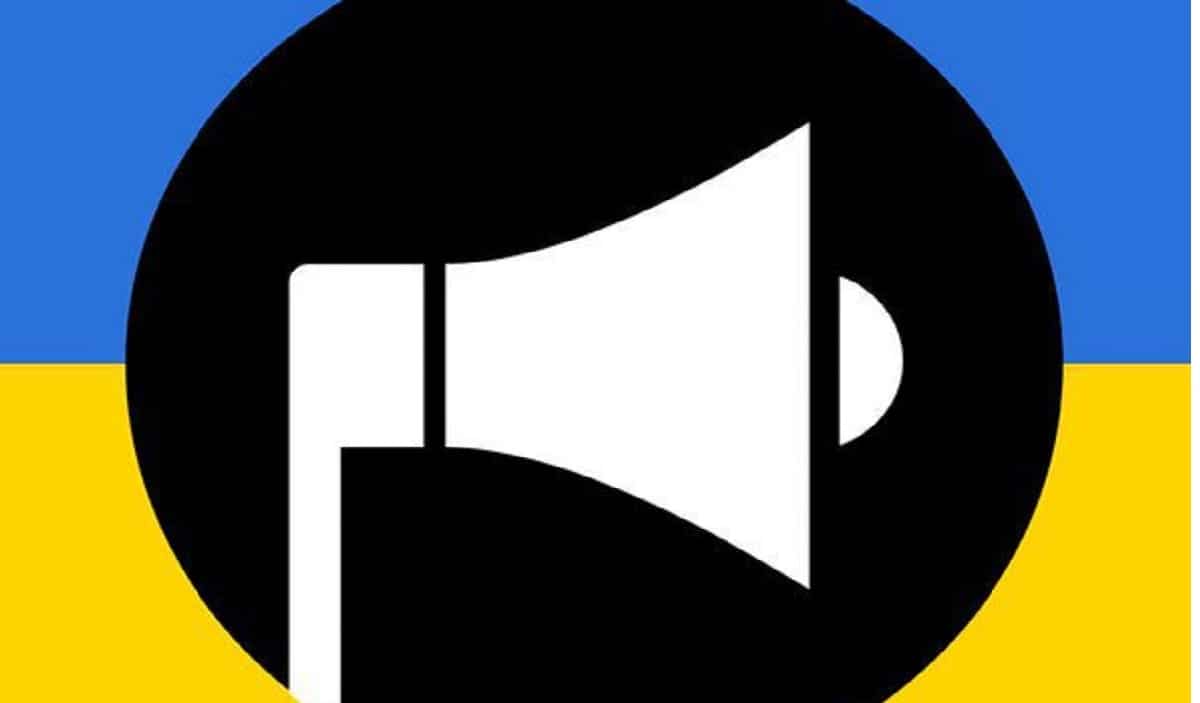
Google has announced He recently pledged to help Kiev save as many civilian lives as possible in the current conflict with Russia. And it is that the search giant announced that it was working with the Ukrainian government to implement an alert system for Android phones in the country.
With that Android users in Ukraine will receive alerts of air strikes directly to their phones before planned attacks occur near them. This new feature is adapted from Google's earthquake warning system.
Air raid alerts from a smartphone are one of the many realities of life in Ukraine today. Although the Ukrainian government has an alert system of air strikes that currently works through a third-party application (Ukrainian Alarm), Google has decided to integrate an air raid alert system directly into Android.
The feature was first spotted by XDA-Developers, it was later confirmed by Google in a blog post. The rollout has already started through Google Play Services and has been rolling out to all Android phones in Ukraine for the past few days.
“Tragically, millions of people in Ukraine now rely on airstrike alerts to try to get to safety. Android alerts will be based on alerts already sent by the Ukrainian government and are adapted from a system built to quickly send earthquake alerts," Google said in the announcement. The benefit of making this feature a part of Google Play Services is that the vast majority of Android users should be able to receive alerts on their phones even without a third-party app.
While the earthquake detection system itself can trigger an alert by pulling accelerometer data from millions of Android phones, Google doesn't detect air strikes. Instead, the company is simply building a client for the government alert system.
"We appreciate our engineering/product/UX teams for fighting to find a [solution] as quickly as possible," Burke said. Since the Russian invasion of Ukraine, Google and many other US companies have scaled back their activity in the country.
"As a follow-up, we are now extending this suspension measure to all of our monetization features, including YouTube Premium, channel memberships, Super Chat, and merchandise, for viewers in Russia," YouTube said in a statement. However, YouTube channels in Russia will still be able to generate revenue from viewers outside of Russia through ads and paid features, including Super Chat and merchandise sales. Free apps from Google Play are also still available in Russia.
Other large technology companies have also mobilized to exert more or less strong pressure on Russia since the beginning of the armed conflict. Apple has completely stopped selling its products in the region, Meta, the parent company of Facebook, and TikTok have blocked access to state-owned news outlets RT and Sputnik, etc.
More recently, DuckDuckGo announced that it will delist sites it believes to be associated with Russian disinformation. However, some users complain that the action defeats DuckDuckGo's goal of providing unbiased search results.
For its part, Microsoft denounces a "tragic, illegal and unwarranted invasion of Ukraine" by Russia and promises to continue protecting the country from cyberattacks and state-sponsored disinformation campaigns. The company says it supports the humanitarian efforts of Ukrainians.
"This war has become both kinetic and digital, with gruesome images coming from all over Ukraine, as well as less visible cyberattacks on computer networks and Internet disinformation campaigns," says Brad Smith, president and vice president of Microsoft in a blog post. . published on February 28.
Additionally, website caching services Cloudflare and Akamai have refused to stop operating in Russia.
According to them: "it would be a victory for Russian President Vladimir Putin and his government in the context of information warfare."
According to them, the maneuver would deprive Russian citizens of quality global information in a context in which the Russian government enters its preparation phase for the disconnection of the global Internet and the anchoring of its sovereign Internet on the Chinese model.
Finally if you are interested in knowing more about it, you can check the details In the following link.
It seems perfect to me, the problem is, do Ukrainians have mobile coverage to receive these alerts? Because even in the event that the mobile telephone antennas continue to work, in a lot of places, they are without electricity, water, or gas and if you cannot charge the mobile, it turns off and an alarm that does not you can receive
Considering that the Starlink service is now deployed in Ukraine, they have the possibility of receiving telecommunications and coordinating, but yes and only if they become encrypted. In any case, they are a risk because they can be located by the Russians and the antennas on the ground can become targets.